The Mary Sue Book Club, November 2022: Detective Fantasies & Pop-Culture Analysis
Reflections on the ADA, fairytale retellings, and a sapphic romance.
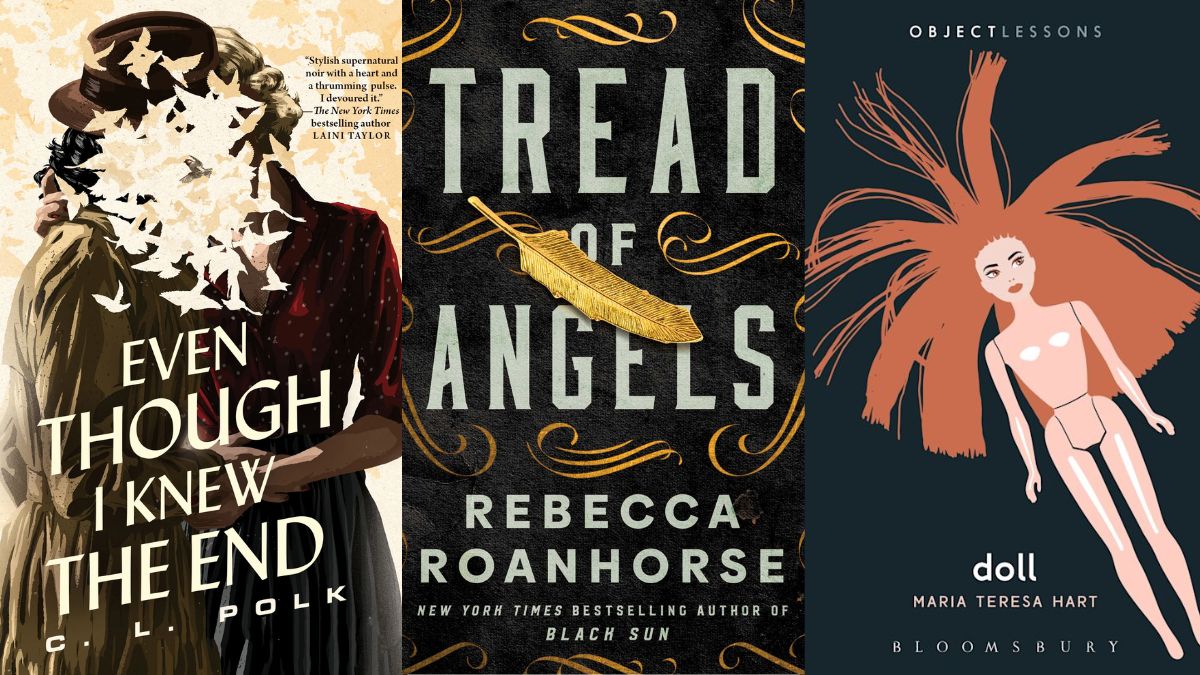
While all elections are important, this month (and last month, in the case of other early voters like myself), many are casting their ballots for the first time in months or years for the 2022 midterm elections on November 8. With all this stress about whether the House and Senate will flip (let alone all the important governors, secretaries of state—who oversee elections—and attorneys general), everyone’s going to be in a desperate race to focus our attention elsewhere while we await results, even if only for a moment. This is where November’s The Mary Sue Book Club comes in.
This month, I’ve selected a considerable amount of non-fiction regarding disability, dolls in pop culture, and the relationship between the author and the monster in fiction. In addition to non-fiction, there’s a title from every-sci-fi-and-fantasy-award-you-can-think-of-winner writer Rebecca Roanhorse and a Chicago-based, sapphic noir by writer C.L. Polk. Finally (even though I have not listed them in order), there’s also an anthology made up of many new and established YA writers reimagining popular fairy tales.
Weird Girls: Writing the Art Monster by Caroline Hagood
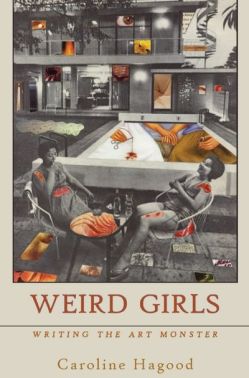
A combination of memoir, cultural critique, and manifesto, Weird Girls traces the art monster-the writer, often coded monstrous and male, single-mindedly dedicated to the work-from ancient myth to modern literature and pop culture to ask: what happens when the art monster is a woman and/or mother? And what’s the connection between creativity and monstrosity? Told in brief, thoughtful, drolly charming chapters, Weird Girls offers a groundbreaking take on art, motherhood, and of course the art monster.
Weird Girls released on November 1.
Doll by Maria Teresa Hart
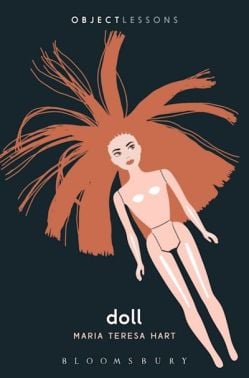
Object Lessons is a series of short, beautifully designed books about the hidden lives of ordinary things.
The haunted doll has long been a trope in horror movies, but like many fears, there is some truth at its heart. Dolls are possessed-by our aspirations. They’re commonly used as a tool to teach mothering to young girls, but more often they are avatars of the idealized feminine self. (The word doll even acts as shorthand for a desirable woman.)They instruct girls what to strive for in society, reinforcing dominant patriarchal, heteronormative, white views around class, bodies, history, and celebrity, in insidious ways. Girls’ dolls occupy the opposite space of boys’ action figures, which represent masculinity, authority, warfare, and conflict. By analyzing dolls from 17th century Japanese Hinamatsuri festivals, to the ’80s American Girl Dolls, and even to today’s bitmoji, “Doll” reveals how the objects society encourages us to play with as girls shape the women we become.
Doll releases on November 3.
Even Though I Knew the End by C.L. Polk
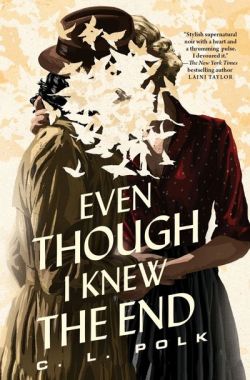
C. L. Polk turns their considerable powers to a fantastical noir with Even Though I Knew the End.
A magical detective dives into the affairs of Chicago’s divine monsters to secure a future with the love of her life. This sapphic period piece will dazzle anyone looking for mystery, intrigue, romance, magic, or all of the above.
An exiled augur who sold her soul to save her brother’s life is offered one last job before serving an eternity in hell. When she turns it down, her client sweetens the pot by offering up the one payment she can’t resist–the chance to have a future where she grows old with the woman she loves.
To succeed, she is given three days to track down the White City Vampire, Chicago’s most notorious serial killer. If she fails, only hell and heartbreak await.
Even Though I Knew the End releases on November 8.
Tread of Angels by Rebecca Roanhorse
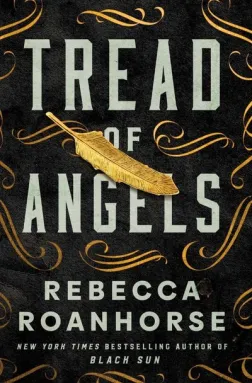
Celeste, a card sharp with a need for justice, takes on the role of advocatus diaboli, to defend her sister Mariel, accused of murdering a Virtue, a member of the ruling class of this mining town, in a new world of dark fantasy from the New York Times bestselling author of Black Sun, Rebecca Roanhorse.
The year is 1883 and the mining town of Goetia is booming as prospectors from near and far come to mine the powerful new element Divinity from the high mountains of Colorado with the help of the pariahs of society known as the Fallen. The Fallen are the descendants of demonkind living amongst the Virtues, the winners in an ancient war, with the descendants of both sides choosing to live alongside Abaddon’s mountain in this tale of the mythological West from the bestselling mastermind Rebecca Roanhorse.
Tread of Angels releases on November 15.
At Midnight: 15 Beloved Fairy Tales Reimagined edited by Dahlia Adler

A dazzling collection of original and retold fairy tales from fifteen acclaimed and bestselling YA writers.
Fairy tales have been spun for thousands of years and remain among our most treasured stories. Weaving fresh tales with unexpected reimaginings, At Midnight brings together a diverse group of celebrated YA writers to breathe new life into a storied tradition. You’ll discover . . .
Dahlia Adler reimagining Rumpelstiltskin, Tracy Deonn – The Nightingale, H. E. Edgmon – Snow White, Hafsah Faizal – Little Red Riding Hood, Stacey Lee – The Little Matchstick Girl, Roselle Lim – Hansel and Gretel, Darcie Little Badger – Puss in Boots, Malinda Lo – Frau Trude, Alex London – Cinderella, Anna-Marie McLemore – The Nutcracker, Rebecca Podos – The Robber Bridegroom, Rory Power – Sleeping Beauty, Meredith Russo – The Little Mermaid, Gita Trelease – Fitcher’s Bird, and an all-new fairy tale by Melissa Albert.
At Midnight releases on November 22.
Disability Pride: Dispatches From a Post-ADA World by Ben Mattlin
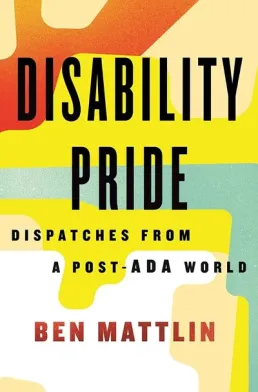
A revealing portrait of the diverse disability community as it is today, and how disability attitudes, activism, and representation have evolved since the passage of the Americans with Disabilities Act (ADA).
In Disability Pride, disabled journalist Ben Mattlin weaves together interviews and reportage to introduce a cavalcade of individuals, ideas, and events in engaging, fast-paced prose. He traces the generation that came of age after the ADA reshaped America, and how it is influencing the future. Mattlin documents how autistic self-advocacy and the neurodiversity movement upended views of those whose brains work differently. He lifts the veil on a thriving disability culture–from social media to high fashion, Hollywood to Broadway–showing how the politics of beauty for those with marginalized body types and facial features is sparking widespread change.
He also explores the movement’s shortcomings, particularly the erasure of nonwhite and LGBTQIA+ people that helped give rise to Disability Justice. He delves into systemic ableism in health care, the right-to-die movement, institutionalization, and the scourge of subminimum-wage labor that some call legalized slavery. And he finds glimmers of hope in how disabled people never give up their fight for parity and fair play.
Dispatches From a Post-ADA World releases on November 29.
—
Which of these are you most excited to check out? Let us know in the comments if we missed a (non-sequel) book you’ve been waiting for!
(featured image: Tordotcom; Gallery / Saga Press; and Bloomsbury Academic.)
The Mary Sue may earn an affiliate commission on products and services purchased through links.
The Mary Sue may have advertising partnerships with some of the titles and publishers on this list.
—The Mary Sue has a strict comment policy that forbids, but is not limited to, personal insults toward anyone, hate speech, and trolling.—
Have a tip we should know? [email protected]
